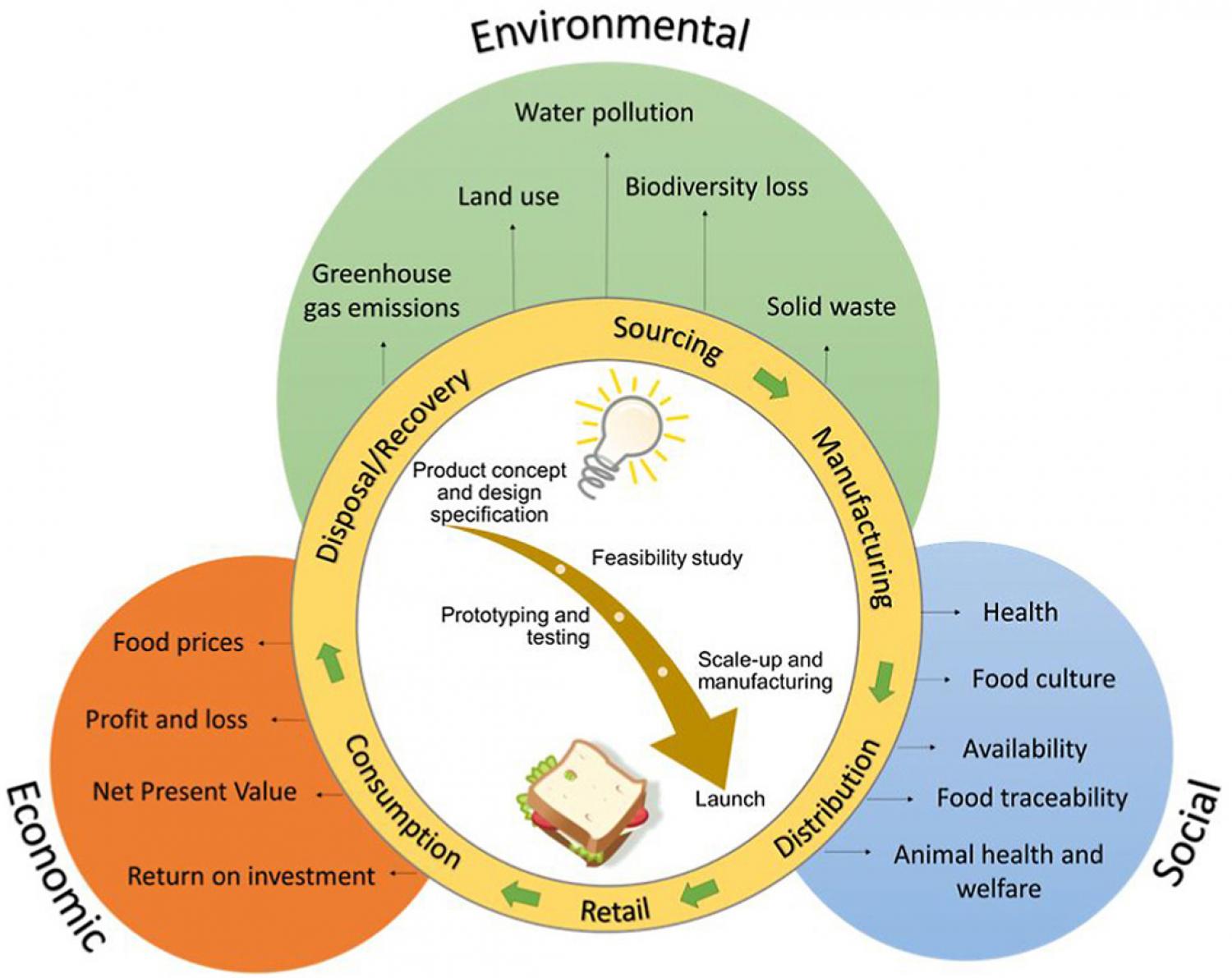
Elsevier, Trends in Food Science and Technology, Volume 108, February 2021
The food industry is responsible for significant impacts on the environment, such as climate change, water depletion and land use. Although these environmental impacts, along with socio-economic ramifications, are generally difficult to monitor and control, there is a significant interest from the food industry to assess the sustainability of their activities and wider supply chains. However, new food products are being continuously designed and manufactured, for instance complex foods made with a number of ingredients such as sandwiches, prepared salads and ready meals. Most sustainability analyses are currently done after the food product is designed and not during the food product development process. Nevertheless, embedding sustainability considerations in the new food product development (NFPD) process has significantly more potential to improve the overall sustainability of the food business. This paper discusses how the food industry could be more sustainable by identifying methodologies and tools to support such sustainability assessments in food businesses. A case study with a prepared food manufacturer is used to discuss where each sustainability methodology and tool could be used in the NFPD process to optimize the design of more sustainable food products. The main conclusion of this paper is that such methodologies and tools should be applied in the first stages of the NFPD process, and then be continuously used when more information on the production processes and wider data on its food supply chain is obtained.
